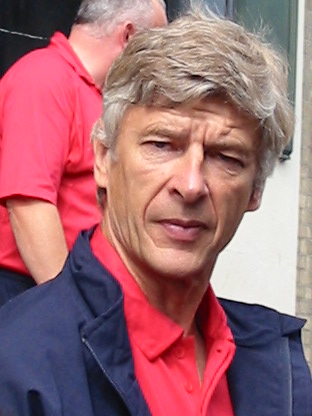Arsene Wenger joined Arsenal in September 1996, one of the first foreign managers to lead a major English club, a complete unknown. Now-famous headlines of ‘Arsene Who?’ in the British press greeted the erudite Frenchman upon arrival.
I started supporting Arsenal in 1998. The first football match I remember watching on television was the 1998 FA Cup final, in which Arsenal sealed their first double since 1971; it was Wenger’s first full season in charge.
My footballing consciousness therefore spans Wenger’s tenure in North London. I’ve never known anything different, something that many Arsenal fans, particularly the so-called millennials, share. During Arsene’s reign, Arsenal have gone from a traditional, local club, albeit one with a widespread fanbase, into a global monolith, supported as vociferously in China and Thailand as in England.
Wenger is the reason. His trophy-laden first era, culminating in the Invincibles of 2003-04, saw a successful side with a rare balance of defensive sturdiness and attacking flare conquer hearts everywhere. I have never seen anything as thrilling in football as the sight of Ashley Cole, Robert Pires and Thierry Henry terrorising right-hand sides across England and Europe. That blend of pace and power, aided by the creativity and inventiveness of Dennis Bergkamp and Freddie Ljungberg was as close as Arsene has come to building the perfect team.
Wenger isn’t just Arsenal’s manager; he is Arsenal. No current manager has moulded a club in their own way like Wenger. Every minor detail from London Colney to the Emirates is strenuously pored over. No other manager would highlight that he has 600 staff to look after, as Wenger did in 2016: “What matters to me is when you have a club with 600 employees you have the money to pay them at the end of the month”. Similarly, he has always sought to pay a relatively even salary to his squad, or at least to minimise the gap between best and worst paid.
These are valiant principles, and Wenger is undoubtedly a great guy. While he can get carried away, blame referees too much and cry foul when opposing teams are overly-physical, overall people admire him. I have several friends who, though despising Arsenal, have a soft spot for the intelligent, funny and downright clumsy 67-year old.
This blog has always been staunchly pro-Wenger. You may have guessed from the tone of the article that it still is. I will always be pro-Wenger. He will always be my favourite manager, the man who nurtured my love for the game and for Arsenal. Make a statue for him to match those for the club’s other legends.

Photo by Alexander Ottesen
You may also have inferred that, for the first time, I want Wenger to leave. I don’t want him hounded out, and I don’t like seeing fans tormenting him during games. I firmly believe that 99% of supporters are fully appreciative of everything he has done. Ensuring a (relatively) smooth transition from Highbury to the Emirates will be one of his legacies.
He will leave the club in better shape than he found it, by a mile. The next manager, whoever that may be, will have the nucleus of a very good squad, money to spend, and a fanbase eager for a fresh start. Of course it will not be easy, just look at Manchester United’s last four seasons. Sir Alex Ferguson managed to get the best out of a ageing squad, with several players playing far better than their ability. Today, Wenger is, in all honesty, incapable of motivating and organising this squad into title challengers.
And take Chelsea. There’s a good squad there, certainly an excellent starting 11. But last season they finished 10th, and both Gary Cahill and David Luiz were in the side that came 6th in 2012. The point is simple. Wholesale changes are not needed to turn Arsenal into champions. Of course certain position could be strengthened, and if Alexis leaves in the summer, a centre forward is a necessity. But with a little bit of tweaking, some organisation and inspiration, we are a club that has a lot of potential.
I am, and always will be, pro-Wenger. I love him for, and am grateful for, everything he has achieved. At the lowest of lows, the 8-2 at Old Trafford at the beginning of the 2011-12 season for example, Wenger steadied the ship and kept us in the Champions League. That was the season Chelsea finished 6th.
Wenger’s Arsenal career will be defined by three periods. The first, from 1996-2006, was an era of unparalleled success for Arsenal, with 7 major trophies. Between 2006-2012, the early Emirates years, he managed to maintain a top-four presence despite some pretty average squads. This was a monumental achievement. The final years, from 2013-2017(?), are somewhat more nuanced. Trophies returned to North London, but very talented squads failed to push on in the Premier League or in Europe. This is where Wenger should have done better.
It is now time to move on. Wenger has said that he will be managing next season, amid mounting speculation over a decision about his future in the coming months. Whether that is at Arsenal or elsewhere remains to be seen. My hunch is that he might stay. But if he does go, I hope the decision is made before the final game of the season. As soon as he announces that he is leaving, the atmosphere at the Emirates will change from turbulent and angry to celebratory. That is the minimum that Arsenal’s greatest manager deserves.
